The Man Who Haunted Himself (1970)
The Two Rogers...
It’s a Roger Moore Bank Holiday Special on Luke Honey’s WEEKEND FLICKS. And as I’m in a goodish mood, the sun is shining (sort of, not), and it’s the Bank Holiday weekend (and all that comes with it), I’m making today’s film recommendation available for tout le monde, including the comments.
Directed by Basil Dearden, The Man Who Haunted Himself was adapted from Anthony Armstrong's novel The Strange Case Of Mr Pelham (1957), which had previously formed the basis for an episode of Alfred Hitchcock Presents. You'll remember Basil Dearden from Dead of Night (1945), The Blue Lamp (1950) and Victim (1961)— both starring Dirk Bogarde— and the Pickelhaube chic of The Assassination Bureau (1969), an amusing Edwardian crime caper starring Diana Rigg and Oliver Reed— the sort of film they used to show on Bank Holiday weekends, but now don't. Bryan Forbes contributed to the script alongside Michael Relph.
Roge stars as Harold Pelham, a square, upstanding City Gent (Lord Lucan moustache), which means a black bowler hat, a cut-away stiff collar and a furled umbrella. And a Rover. And a Georgian house, and a dishy, if chilly, wife and two Prep School boys with plummy accents. Anyway, driving the Rover down the ten-year-old M4 (Oh Brave New World!), he's suddenly possessed by his alter ego, a sort of Lamborghini-driving demonic Playboy— like a Lord (Brett) Sinclair of The Persuaders gone wrong. And crashes. And then dies on the operating table for a minute or so, releasing his alternative doppelganger so that there are now two Roger Moores, like a Seventies Jekyll and Hyde, except that there are two of 'em— one of whom is free to gamble, womanise, cheat win at billiards, make dodgy business deals and impress his desirable wife, played by the lovely Hildegarde Neil— in other words, to lead the appealing life of an international man of mystery, circa 1970.
It's a delightful period piece, an evocative snapshot of late 60s/early 70s London, which includes Trumper's, the Reform Club, the London Planetarium (fruity narrator), the Monument, the swimming pool at Dolphin Square and a misty St Paul's. The Pelham residence is a classic of early 70s British cinema: a Georgian-ish townhouse in Hadley Wood, Hertfordshire (near Elstree studios), decorated to the nines in late Sixties taste, which means pea-green fitted carpets, Regency stripes, Chinese jade, drum lampshades, Hugh Evelyn lithographs (veteran cars, militaria, carriages) and antiques sourced by the art director from one of those prop companies in Shepherd's Bush, artefacts which resurface in low-budget British films time and time again. And, of course, it's all very civilised and mannered with a proper drinks tray ("Another drink, Darling?") and whisky in cut-glass tumblers. Inevitably, there's a butler called Luigi.
Right. So Harold's on the board of a marvellously crusty, Dickensian shipping firm, Freeman, Pelham & Dawson, with olde panelled offices on The Thames: family portraits, wall-lights, shiny mahogany and soda syphons. And it's very much a snapshot of the state of British industry at that time— when the brash corporate raiders, the thrusting Middle-Aged Turks of the Clermont Club, the Jim Slaters and the Jimmy Goldsmiths (like the buccaneers of the 18th century East India Company) bought up sluggish, uncompetitive, gentlemanly family firms, led by Bentley driving, pin-striped clubbable chairmen, and broke them up, sacking the staff in the process, and made a fast buck. You see this in other films of this period— some nine years before Mrs Thatcher's election victory in the Spring of 1979. Peter Cook's The Rise and Rise of Michael Rimmer (1970) immediately springs to mind, with the clipboard-wielding proto-yuppy, Peter Cook, sorting out— and taking over— a lackadaisical opinion poll company run by dozy old buffer, Arthur Lowe.
This takes me to She-Who-Can-Do-No-Wrong Hildegarde Neil, the distinguished, seriously gorgeous Shakespearean actress who plays Harold's long-suffering wife, Eve. It was her first film. She's perfect as the beautiful, slightly chilly, sophisticated, coiffed English trophy wife— they spoke proper in them days— a woman, who for some inexplicable reason, Harold Number One is unable to make love to. He's kinda impotent on the sex front. Then smooth-talking Harold Number Two turns up, takes Eve to a smart nightclub where they smooch to the sound of the Hammond organ, drives her home in the Lambo, and, oh, what a surprise, she invites him back into her bedroom.
The perfect, frustrated upper-middle-class English wife was very much a thing of the films of this period— like the lovely, late Virginia Maskell in the romantic flick Interlude (1968), which I am most definitely going to cover in a future post (if it's available on DVD). Harold Number Two's French mistress (Olga Georges-Picot) is Eve Pelham's faster alter ego: international dollybird material, a photographer with the obligatory Chelsea mews house (actually Glebe Place, the location for Uncle Monty's house in Withnail & I) and similar looks. As Harold Numero One says, "The sort of girl I would go for if I wasn't married…"
So there you go. The Man Who Haunted Himself. I've seen it three times now, and I like it a lot. It's most probably on my all-time favourite film list— but that's a very big list. Is it Roger's greatest performance? Tricky to say that one. I mean, Roge's kinda dead-pan lobotomised, is he not? But it works, I think. And there's a lovely cast of supporting British character actors, including Anton Rodgers, Anthony Nicholls (the general in If….), and Whatshisface, that vicar chap off To The Manor Born. Plus, a suave and sinister performance from John Carson, star of the British television series Hammer House of Horror (1980). There's a cracking retro soundtrack theme by Michael Lewis. And it's a car spotter's paradise. Much to be said for it.
The Man Who Haunted Himself (1970) is available in numerous DVD editions. There's also a tasty Special Edition DVD/Blu-ray set with audio commentary from Roger Moore and Bryan Forbes. I have a hunch, too, that it may also be available to watch online via various platforms, but I couldn't find it on Amazon Prime Video.
You've just been reading a newsletter for both free and 'paid-for' subscribers. I hope you enjoyed it. A big thank you to all those of you who have signed up. Really appreciated. To view the other films we’ve covered so far, please go to the Luke Honey WEEKEND FLICKS. archive. ‘Paid for’ subscribers get two weekend film recommendations, access to the entire archive and the ability to comment. By the end of the year, there should be over 100 film recommendations.
I’ll be back on Sunday with Part Two of the Bank Holiday Roger Moore Special. In the meantime, I hope you have a relaxing and cinematic Friday. So why not settle down with a cocktail and a film this evening? I can’t think of anything more civilised…


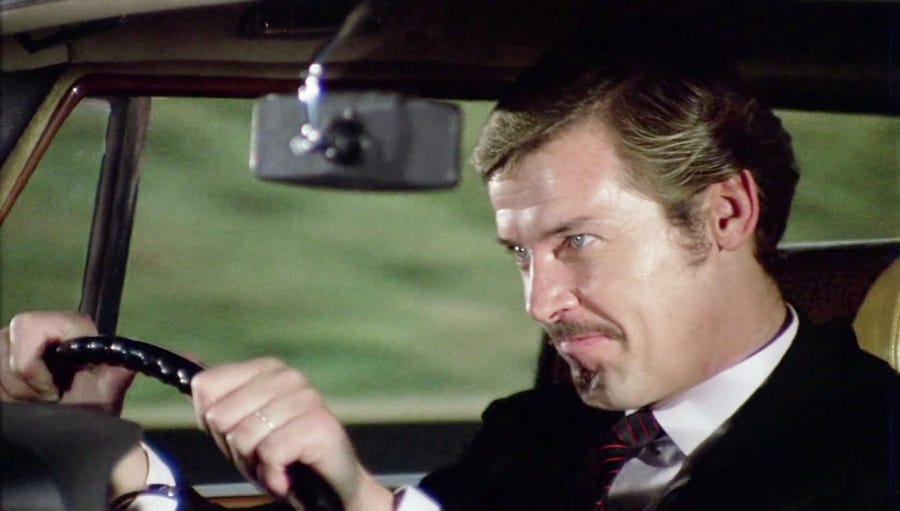
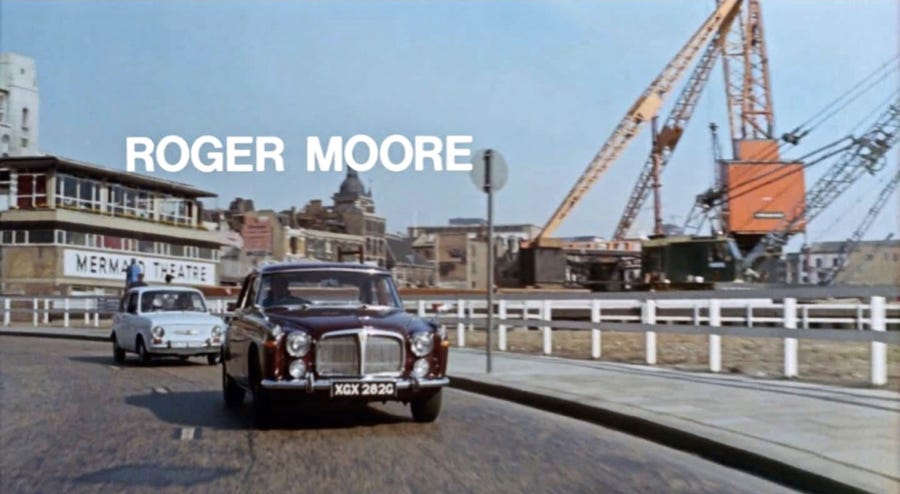
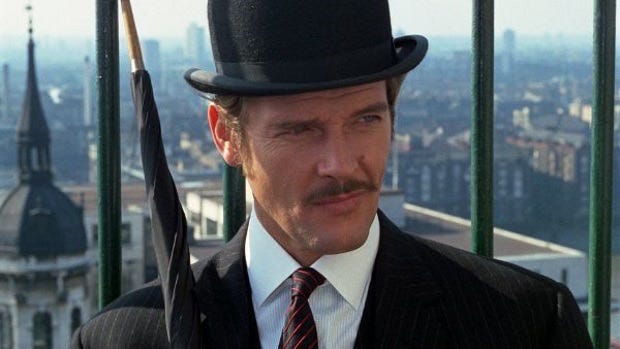
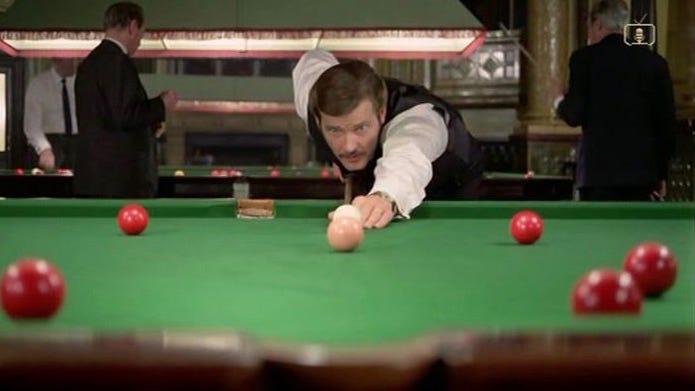



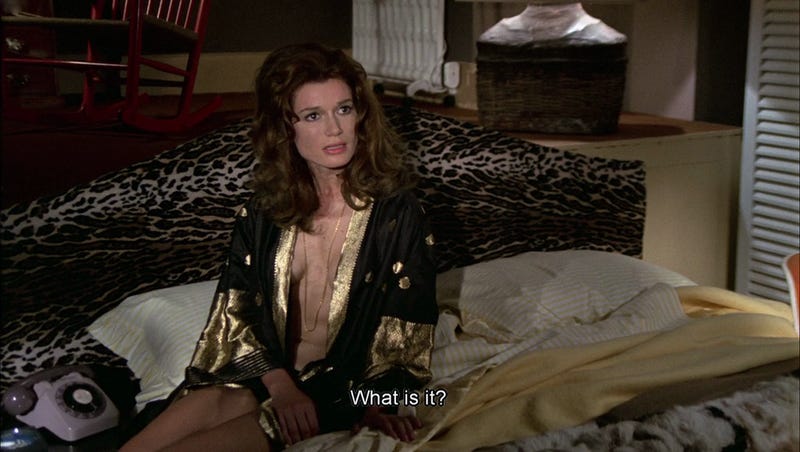


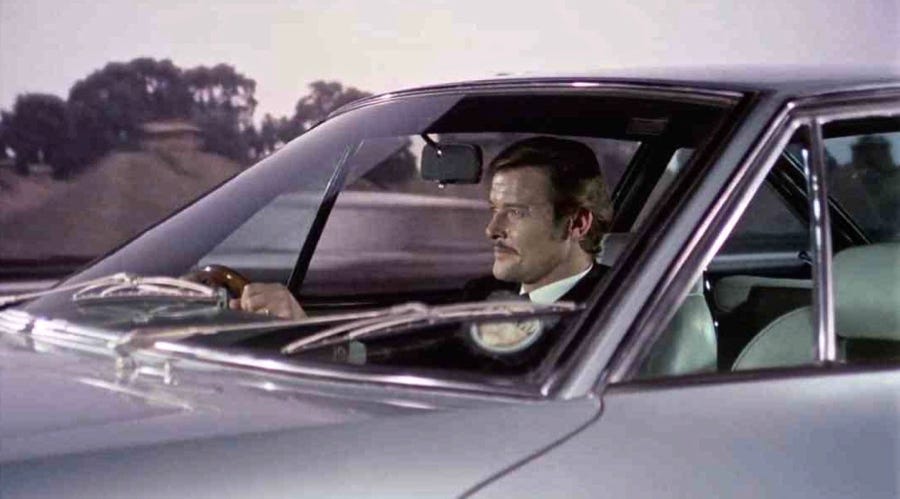
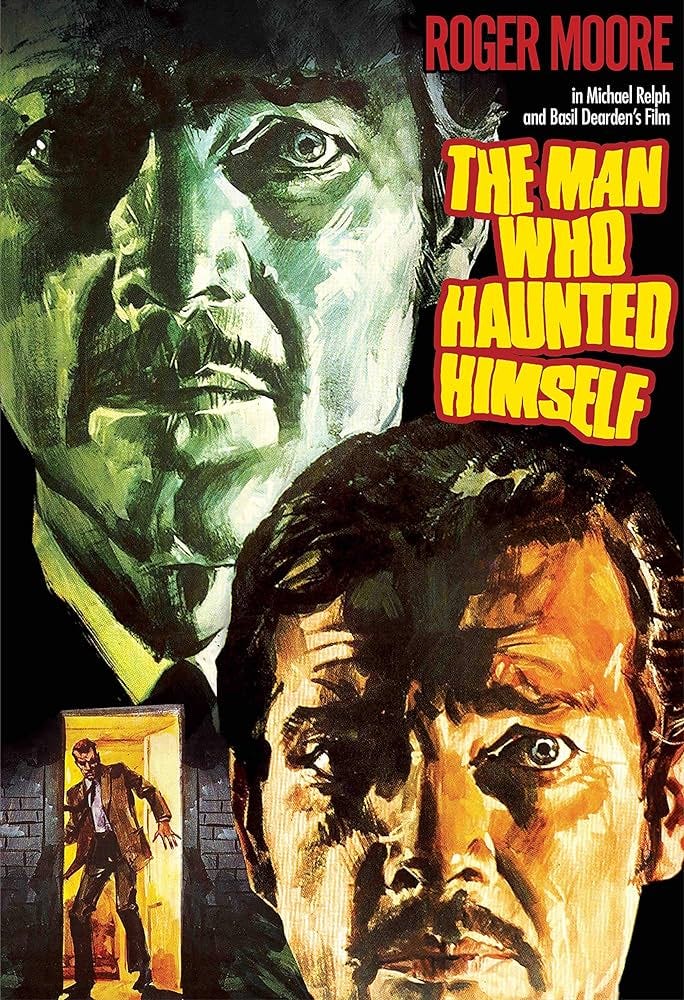
Great stuff. It crops up on Talking Pictures TV from time to time.
Both intriguing and open minded.
Liberally different within the class backgrounds, therefore, "educated" in posh English, and then basic English that is expressed in the common way. For example, the reaction to the 1970s, education, which at that stage, was still regarded as an uncommon experience for both the working man or woman.